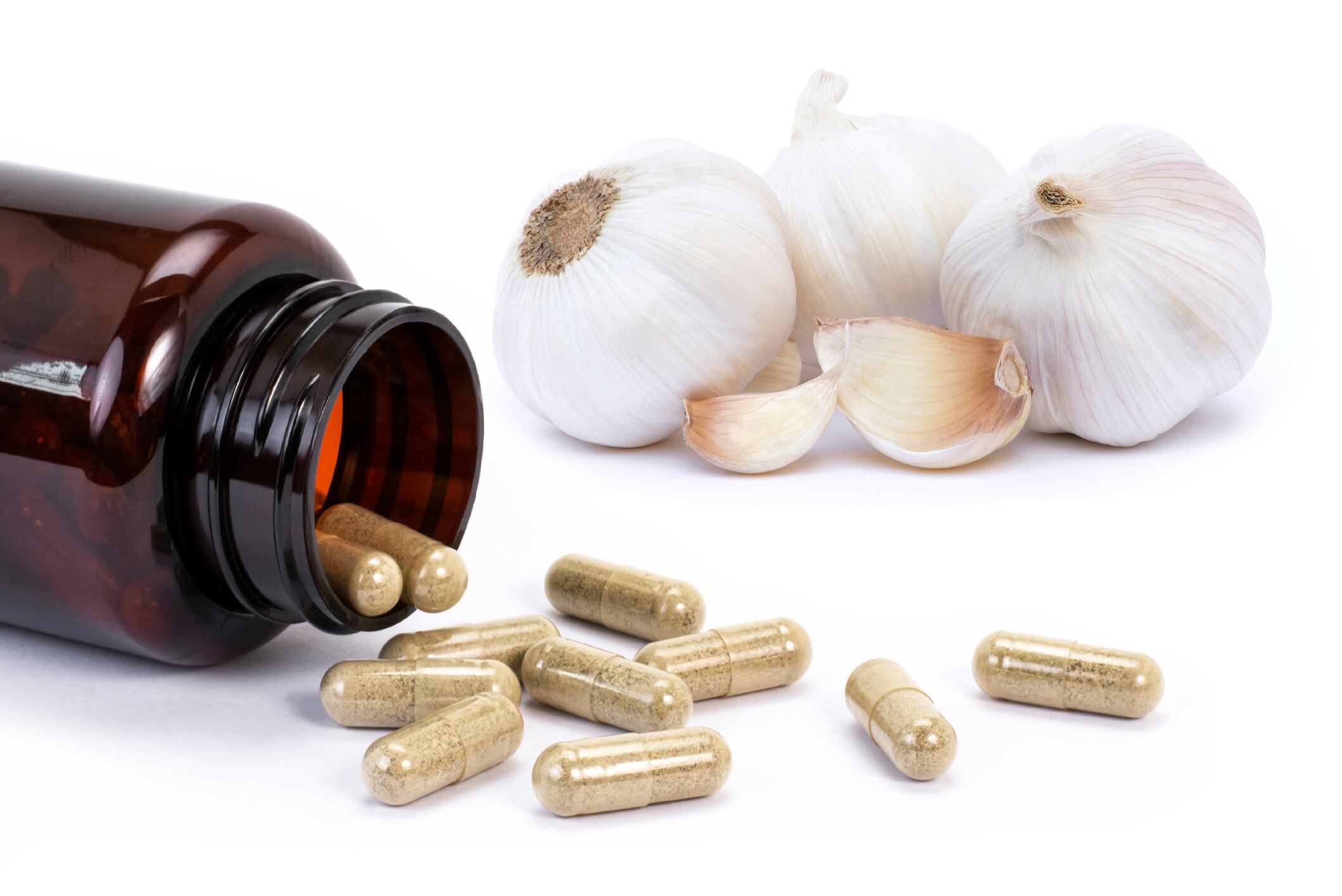In a study published in the journal Phytotherapy Research, the researchers conclude that garlic supplementation improves cardiometabolic indices, reduces fat accumulation and increases intestinal transit time that can be disrupted by alterations in gut microbiota.
“For the first time, this randomized controlled trial (RCT) found an improvement in intestinal transit time, lipid accumulation product (LAP), cardiometabolic index (CMI), atherogenic index of plasma (AIP), Castelli risk index I (CRI-I) and Castelli risk index II (CRI-II) after garlic powder supplementation for 3 months,” the researchers wrote.
“Consumption of garlic can be considered a strategy for management of cardiovascular risk factors, especially among subjects with MetS and patients with non-communicable diseases linked to MetS such as T2DM, NAFLD, and cardiovascular disease (CVD).”
Garlic, lipid accumulation and prebiotic action
Garlic possesses several bioactive components such as allicin, S-allylcysteine (SAC), ajoene, diallyl disulfide, SAC sulfoxide and S-methylcysteine sulfoxide, which have been shown to confer beneficial effects on hypertension, insulin resistance, oxidative stress, lipid profile and hepatic steatosis.
“There is no previous study investigating the effect of garlic on LAP, but waist circumference (WC) and triglycerides (TG) are the variables of LAP, and some studies have shown garlic effects on these parameters,” the researchers noted.
They pointed to previous studies on the potential role of garlic, particularly its compound allicin, in moderating intestinal absorption and liver production of triglycerides, modulating differentiation of human preadipocyte, and increasing the expression of brown adipocyte-related genes and thermogenic genes to improve body composition and waist circumference.
In support of garlic as a prebiotic to improve intestinal function and transit time, the study also highlighted previous research showing garlic's effect on the regulation of gut microbiome dysbiosis by increasing the relative abundance of Lachnospiraceae and decreasing the relative abundance of Prevotella.
“There is a direct association between the abundance of Lachnospiraceae and anti-inflammatory activity and host mucosal integrity,” they noted. “Garlic can promote gastro-intestinal function by protecting mucosal defense against Helicobacter pylori activity and ulcer development.”
Study details
The double-blind, randomized, controlled trial recruited 90 subjects with MetS and randomly assigned them to either a treatment or control group. There were no significant differences in baseline characteristics between the two groups.
The treatment group received four tablets containing 400 mg of garlic powder, providing 1.5 mg of allicin daily, while the control group received a 400 mg starch placebo, matched in appearance to the intervention tablet. All participants consumed two tablets an hour before lunch and two tablets an hour before dinner over a test period of three months.
In addition, participants were asked to follow the common healthy dietary recommendations throughout the follow-up. To monitor dietary intake, the study used a three-day (one weekend day and two non-consecutive weekdays) 24-hour recall questionnaire at baseline, weeks 6 and 12. This included evaluation of rich sources of allicin such as garlic, onion, scallion and leek. Physical activity was also assessed at these intervals.
Findings
In the 84 participants who completed the study, the researchers noted a significant improvement in intestinal transit time in the treatment group compared to the control group at Week 6 (percent of participants with normal stool consistency: 90.4% vs. 66.6%) and after the intervention (92.8% vs. 64.2%). Garlic powder supplementation also significantly reduced LAP (mean change: -21.5± 23.4 vs. 0.7 ± 21.5) as compared to placebo.
In addition, garlic powder supplementation compared to the placebo reduced the levels of CMI (mean change: -0.85 ± 0.8 vs. 0.13 ± 0.8), AIP (mean change: -0.14 ± 0.1 vs. 0.01 ± 0.1), CRI-I (mean change: -0.69 ± 0.5 vs. 0.16 ± 0.5) and CRI-II (mean change: -0.50 ± 0.3 vs. 0.02 ± 0.3).
"In conclusion, garlic powder supplementation for 12 weeks improved intestinal transit time and cardiovascular risks," the researchers wrote. "Clinical studies evaluating the effect of garlic on outcomes similar to the ones of the present study are scarce, and several studies are needed to confirm our results."
Source: Phytotherapy Research
“Garlic supplementation improves intestinal transit time, lipid accumulation product and cardiometabolic indices in subjects with metabolic syndrome: A randomized controlled trial.”
Authors: Abbas Ali Sangouni et al.




